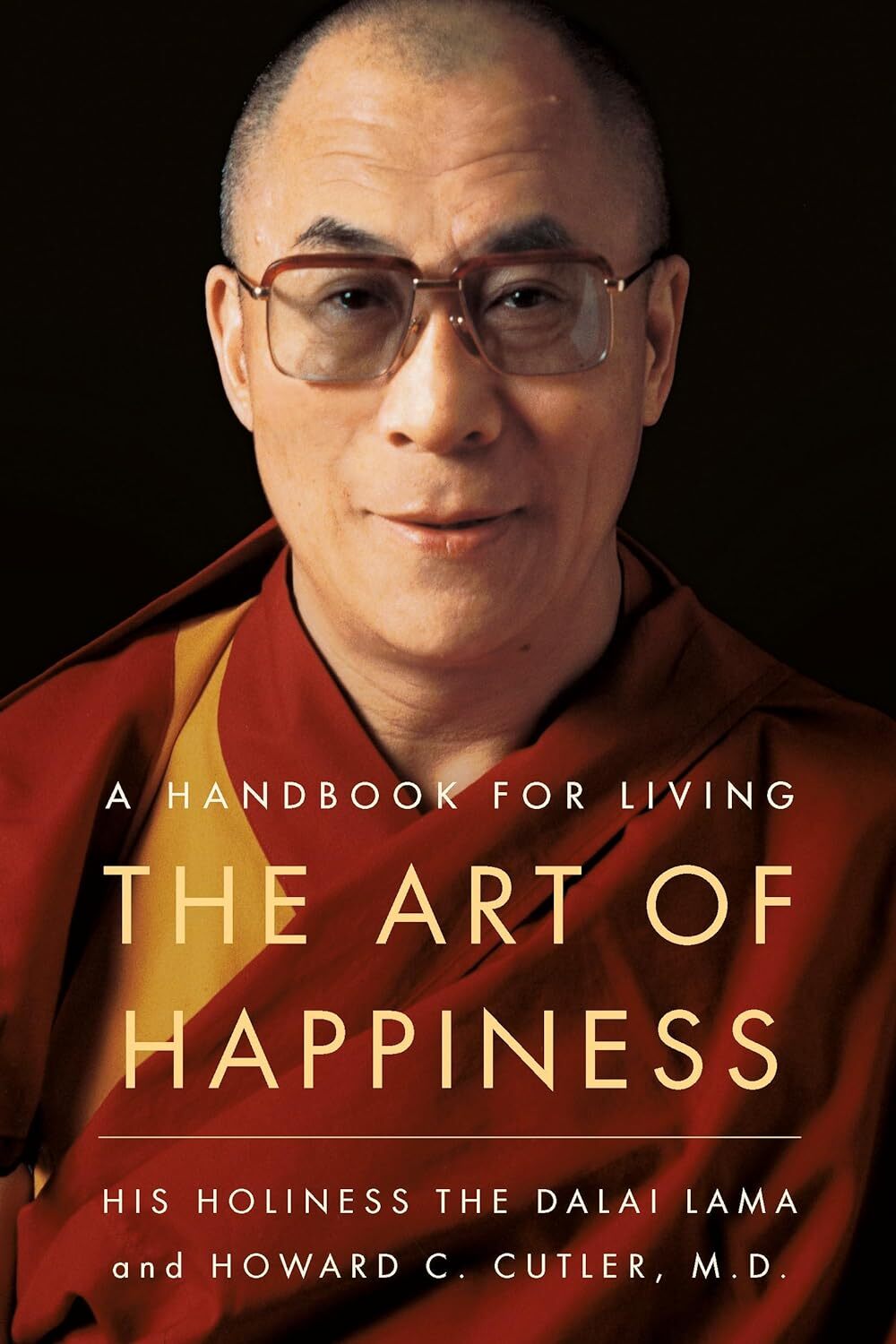The Dalai Lama
Early Years, and Leaving Tibet

Tenzin Gyatso, the 14th Dalai Lama of Tibet is the spiritual and temporal leader of the Tibetan people and the leader of Tibetan Buddhism in the world today. He was born on July 6, 1935. Two years later, after a nationwide search and numerous tests, he was declared to be the reincarnation of his predecessor, the 13th Dalai Lama.
At the age of six, he began intensive training and schooling in Buddhist studies. In his autobiography, My Land and My People, he explains that he initially learned to read and write by imitating his tutors. He trained his memory daily by learning passages of scripture by heart. By the age of 13, he was engaging in dialectical debates with learned scholars. His first exposure to metaphysics and philosophy, also at age 13, unnerved him: "I had the feeling of being dazed, as though I were hit on the head by a stone, but... 'Nothing remains difficult once you get used to it', an Indian seer has said, and I certainly found this was so in my education."
In addition to his studies in the art of healing, Sanskrit, dialectics, metaphysics, philosophy and religion, he received intensive training in meditation and concentration to train his mind for even more advanced studies: "My belief and faith in my religion became deeper; the assurance in my mind became firmer that I was following the right path... It was this sense of spiritual elevation, which was attended on the mental plane by a sense of improved intellect, by better powers of memory, greater proficiency in debate and increased self-confidence."
At the age of 24, the Dalai Lama took his preliminary examinations in the form of debates at each of the three monastic universities in Lhasa. Finally, at the age of 25, after 19 years of rigorous training, he took his final examination sessions on the appointed day. That morning before hundreds of scholars and thousands of monks, he was examined for logic by 30 scholars. In the afternoon, he debated the Great Treatises with 15 scholarly opponents, and that evening, 35 more scholars tested his knowledge of the canon of monastic discipline and metaphysics. "He was recognized by his tutors to be unparalleled."
In March 1959, within two weeks of this final examination, rumours had spread through Lhasa that the Chinese who had been garrisoned there for almost nine years, were planning to kidnap the Dalai Lama. As a result, some 30,000 Tibetans gathered at his summer palace, the Norbulingka, determined to protect their leader at the cost of their lives. The Chinese considered them to be "reactionaries."
Unable to urge his people to return to their homes, the Dalai Lama was forced to make a decision when two shells of artillery were fired by the Chinese. In the hopes of dispersing the huge crowd, and thereby averting a large massacre, the Dalai Lama decided to escape because his people would not leave as long as he was in the palace.
That evening, hasty last-minute preparations were made: "A soldier's clothes and a fur cap had been left for me, and about 9:30, I took off my monk's habit and put them on, and then, in that unfamiliar dress I went to my prayer room for the last time. I sat down on my usual throne and opened the book of the Lord Buddha's teachings, which lay before it, and I read to myself till I came to the passage in which Lord Buddha told a disciple to be of good courage. Then I closed the book and blessed the room, and turned down the lights. As I went out, my mind was drained of all emotion. I was aware of my own sharp footfalls on the floor of beaten earth, and the ticking of the clock in the silence."
"At the inner door of my house there was a single soldier waiting for me, and another at the outer door. I took a rifle from one of them and slung it on my shoulder to complete my disguise. The soldiers followed me and I walked down through the dark garden, which contained so many of the happiest memories of my life."
That night, in this disguise of a soldier, the Dalai Lama and a small party left Lhasa on ponies. They travelled for five days before a message reached them: 48 hours after they had escaped the palace, the Chinese had commenced firing. They shelled the Norbulingka Palace, the city, the Potala, the temple and neighbouring monasteries. "Nobody knows how many people of Lhasa were killed. Thousands of bodies could be seen inside and outside the Norbulingka. That evening, the Chinese were seen to be going from corpse to corpse, examining the dead faces, especially of the monks, and during the night the report was brought back to the camp that I had disappeared."
When the Dalai Lama left Lhasa, he was not thinking of going to India; he still hoped to be able to stay somewhere in Tibet. The party travelled day and night, stopping only briefly to rest in the occasional humble Tibetan house in the countryside. He states in his autobiography, "On the far bank of the river by the ferry, there is a little village called Kyeshong, which means Happy Valley. As the ferryboat approached the other shore, we could see a large crowd, which had gathered to receive us and when we approached, we could distinguish Khampa soldiers among them, and village yeomen dressed in white with yellow badges on their arms, men of the Volunteer Army who had joined the Khampas. When we landed, we found them deeply distressed by what they heard of the events in Lhasa and when we rode on, I saw many of them weeping. Kyeshong was the first village we had passed through on our journey, and perhaps that fact, and perhaps its name, made me even sadder as we rode away. There, I thought, were the people of Tibet, who had lived in their Happy Valley for centuries in perfect peace and harmony, and now grim fear stood over them and threatened all they lived for."
As news of destruction and loss reached the Dalai Lama's party, he knew that exile to India was the only answer: "By then, all of us had admitted the unwelcome truth to ourselves: that wherever we tried to stop in the mountains, the Chinese could hunt us out, and that my presence there could only lead in the end to more fighting, and more death of the brave men who would try to defend me. So, at last, we took the decision to send officials ahead of us to the border, with a message asking the Indian government for asylum. We did not want to cross the border before we had permission. We told them to press on into Indian territory and find the nearest Indian officials who could accept the message and send it on to Delhi. Then they should wait for an answer and bring it back to the frontier. This party left us at midnight to ride to the frontier with all the speed they could."
Meanwhile the Dalai Lama's party continued their trek: "It was very cold; our fingers and hands were numbed and our eyebrows frozen. My younger brother in particular had a very bad time of it; and those with grown moustaches on the journey found them full of ice. But as we had no extra clothes, the only way to keep warm was to walk. So again, we led our ponies. We tried to spare our ponies as much as we could all through the journey, not only because Tibetans always do, but especially because they had so far to go and there was so little fodder for them. That was one of the reasons why our journey took so long, and why our friends in other countries were left so long to wonder where we were. By about 11 that morning, we were clear of the pass, and we stopped to rest. We had some bread, hot water and condensed milk, and it seemed delicious."
For several more days, the party, by now a long procession of two or three hundred, travelled, braving storms and hardship. "... The weather did its worst for us. For the first time we slept in tents, and it began to pour with rain. My tent had leaks in it. I woke up about three in the morning and tried to move my bed to a drier place. But that did not solve the problem and I had to sit up for the rest of the night, and most of the others, in other tents, had the same kind of trouble. In the morning, I was feeling very ill. We did not try to move on. I was too sick to ride and during the day I grew worse... The next morning, I could hardly move. While I was in that melancholy state, I heard a report from India on our radio that I had fallen off my horse was badly injured. Except that I knew it would upset my friends, I was rather cheered up by that report, it was one misfortune, anyhow that I had avoided so far..."
"The second morning, I was still too ill to ride a horse, yet we thought we ought to move, in order to relieve the rearguard of Khampas and soldiers of the responsibility. So, my followers helped me onto the broad back of a dzo, the cross between a yak and a cow, which is an equable animal with an easy gate, and on that primeval Tibetan transport I left my country."
Over 100,000 Tibetan refugees eventually fled from their country and over one million died under brutal suppression.
In September 1979, his Holiness the Dalai Lama toured 22 cities in the United States, and in October/November 1980, he toured Canada speaking in most major cities.
In 1989 the Dalai Lama was awarded the Nobel Peace prize. Throughout his life he has given numerous public talks in countries throughout the world. He has authored and co-authored over 130 books.
These pages contain a direct transcript of the teachings he gave in Vancouver, British Columbia, during his six-day visit from October 22 - 27, 1980.
